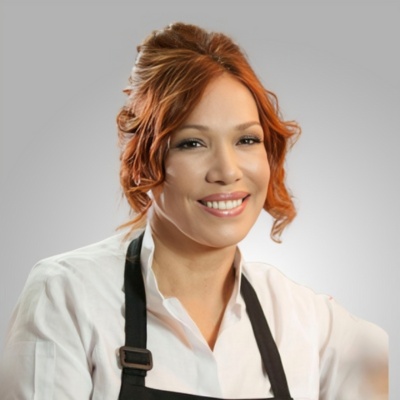
Leonor Espinosa
Chef and cultural promoter, she stands out for transforming gastronomy into a vehicle for identity and social development. With creativity and commitment, she inspires to value diversity, promoting cuisine as an engine of inclusion and sustainability.
Biography / Speaker Info
Leonor Espinosa is a prominent Colombian chef and entrepreneur, recognized worldwide for her innovative cuisine and her deep commitment to the biodiversity and traditions of her country. Her career is a tale of passion, vision and immense respect for the ingredients and cultures of Colombia, which have led her to win the prestigious Michelin stars and to be awarded as the best chef in the world. With a style that combines the avant-garde with the traditional, Espinosa has created a cuisine that is both innovative and deeply connected to nature, elevating Colombian cuisine to a global level.
His career in the world of gastronomy began after a successful stint in advertising and art, a background that gave him a unique perspective on creativity and communication, skills that he applied to his cuisine in a masterful way. In 2007, he opened his restaurant Leo in Bogotá, which quickly became a benchmark for haute cuisine in Colombia. At Leo, Espinosa focuses on researching his country's culinary traditions and using local and native ingredients, often little known outside the region. Each dish is a story that tells the cultural richness and biodiversity of Colombia.
Leonor Espinosa's work has been recognized with numerous awards and distinctions, both nationally and internationally. In 2022, she was awarded the prize for Best Female Chef in the World by The World's 50 Best Restaurants, a recognition that catapulted her to the top of global gastronomy. In addition to her restaurant, Espinosa has founded the organization Funleo, through which she works to preserve the culinary traditions of indigenous and Afro-Colombian communities, promoting sustainable development and social equity.
Beyond her role as a chef, Leonor Espinosa is a social leader and an active voice in the debate about the importance of gastronomy for economic development and biodiversity conservation. Her work is a testament to her firm belief that cuisine can be a powerful tool for social change and a driver of community development.










